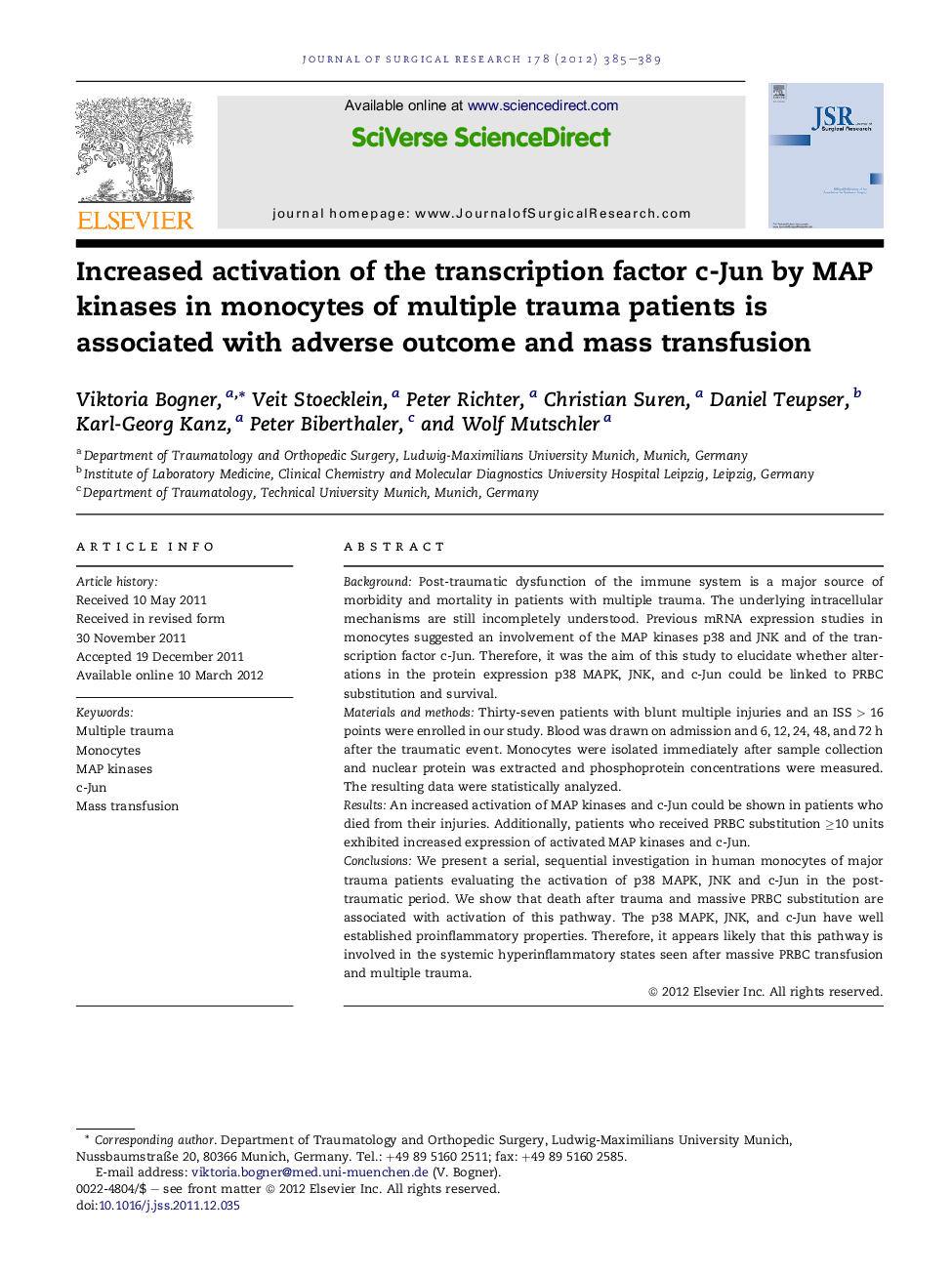| Article ID | Journal | Published Year | Pages | File Type |
|---|---|---|---|---|
| 4301407 | Journal of Surgical Research | 2012 | 5 Pages |
BackgroundPost-traumatic dysfunction of the immune system is a major source of morbidity and mortality in patients with multiple trauma. The underlying intracellular mechanisms are still incompletely understood. Previous mRNA expression studies in monocytes suggested an involvement of the MAP kinases p38 and JNK and of the transcription factor c-Jun. Therefore, it was the aim of this study to elucidate whether alterations in the protein expression p38 MAPK, JNK, and c-Jun could be linked to PRBC substitution and survival.Materials and methodsThirty-seven patients with blunt multiple injuries and an ISS > 16 points were enrolled in our study. Blood was drawn on admission and 6, 12, 24, 48, and 72 h after the traumatic event. Monocytes were isolated immediately after sample collection and nuclear protein was extracted and phosphoprotein concentrations were measured. The resulting data were statistically analyzed.ResultsAn increased activation of MAP kinases and c-Jun could be shown in patients who died from their injuries. Additionally, patients who received PRBC substitution ≥10 units exhibited increased expression of activated MAP kinases and c-Jun.ConclusionsWe present a serial, sequential investigation in human monocytes of major trauma patients evaluating the activation of p38 MAPK, JNK and c-Jun in the post-traumatic period. We show that death after trauma and massive PRBC substitution are associated with activation of this pathway. The p38 MAPK, JNK, and c-Jun have well established proinflammatory properties. Therefore, it appears likely that this pathway is involved in the systemic hyperinflammatory states seen after massive PRBC transfusion and multiple trauma.
